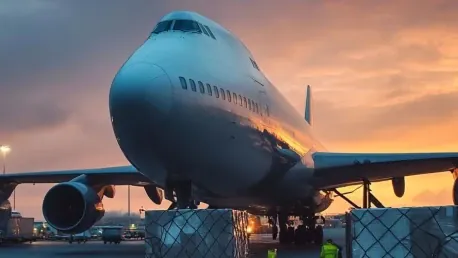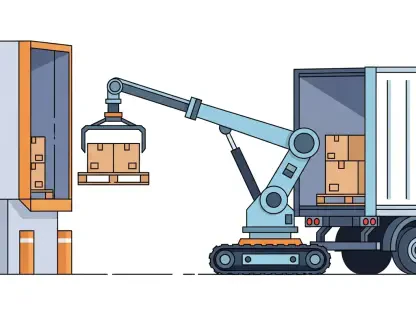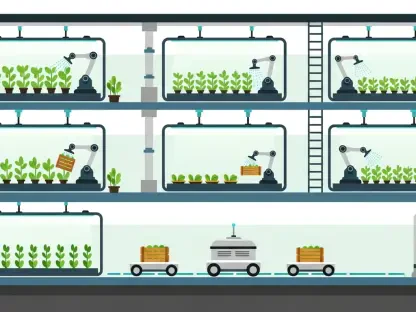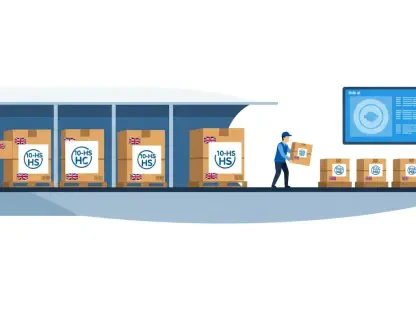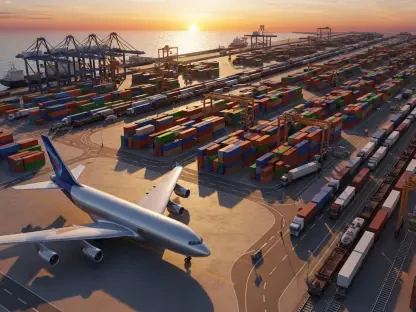Navigating the volatile landscape of the air cargo industry, Jae Dong Eum, Senior Vice President and Head of Cargo Business Division at Korean Air, outlines a comprehensive strategy to ensure Korean Air Cargo continues thriving in the face of economic uncertainty and shifting market dynamics. The company’s adaptability, focus on technological advancements, commitment to customer satisfaction, and sustainability efforts form a multi-pronged approach to maintaining its competitive edge. Let’s delve deeper into these strategies and examine how Korean Air Cargo is positioning itself to lead in an evolving industry.
Global Economic Conditions and Industry Impact
The global economy is in a state of flux, influenced by ongoing conflicts such as the Russia-Ukraine war and recent disturbances like the Israel-Hamas conflict. These geopolitical issues, coupled with shifts in U.S. tariff policies and new EU regulations, create a complex and challenging environment for the air cargo industry. Despite these obstacles, opportunities do exist—a potential reduction in benchmark interest rates by the U.S. Federal Reserve, for instance, could spur investment and consumer spending, subsequently boosting trade and air freight demand. Moreover, disruptions in maritime logistics are creating further shifts; ongoing conflicts affecting shipping lanes like the Red Sea could push cargo volumes from sea to air, offering Korean Air Cargo a chance to capitalize on these realignments.
Strategically positioned at Incheon International Airport, Korean Air Cargo benefits from efficient connections to key markets across Asia, America, and Europe. This geographical advantage, combined with the airline’s ability to make rapid decisions and facilitate effective cross-departmental communication, ensures a swift response to market shifts. These strengths position Korean Air Cargo well to navigate the unpredictable economic landscape, maintaining its service levels and operational efficiency even in turbulent times.
Differentiating Through Technological Advancements
In the quest for operational excellence, Korean Air Cargo leverages cutting-edge technologies to optimize efficiency and enhance service quality. Integrating Internet of Things (IoT) devices and Artificial Intelligence (AI) into its operations allows for real-time data exchange with customers, facilitating efficient scheduling and freight rate verification. This technological adoption not only boosts operational efficiency but also enriches the customer experience, offering timely and accurate information.
A prominent example of this commitment to digital transformation is the adoption of IATA’s ‘One Record’ initiative, which aims to achieve paperless management, aligning with the airline’s Environmental, Social, and Governance (ESG) goals. Increasing the use of electronic Air Waybills (e-AWB) for outbound general cargo further exemplifies Korean Air Cargo’s dedication to minimizing paper waste and optimizing resource management. By seamlessly integrating technology into its operations, the airline not only streamlines processes but also adheres to sustainability goals, driving both operational and environmental benefits.
Responding to E-commerce Surge and Customer Expectations
The COVID-19 pandemic has significantly accelerated the growth of cross-border e-commerce, a trend that is projected to continue driving air cargo demand. Korean Air Cargo has adapted its operations to meet this surge in demand by forming a Shipper Sales Team. This team is dedicated to capturing and responding to customer needs swiftly, offering competitive product and service solutions designed to ensure high levels of customer satisfaction.
In this evolving landscape, customer expectations have shifted. While cost remains a consideration, reliability and precision have become paramount. Customers increasingly prioritize consistent flight schedules and punctuality, especially in the face of unforeseen circumstances. Korean Air Cargo addresses these expectations by maintaining robust communication channels, ensuring that customers are promptly informed, and collaborating to find solutions when issues arise. The airline’s specialized transportation solutions for pharmaceuticals, oversized cargo, live animals, and semiconductor equipment further demonstrate its commitment to meeting diverse customer needs with precision and care.
Sustainability Efforts and Environmental Commitments
Addressing environmental concerns is a critical component of Korean Air Cargo’s strategy. In September 2023, the airline launched its sustainable aviation fuel (SAF) program, underscoring a commitment to climate change mitigation. This initiative is among the first in the Asian aviation sector and aims to foster a domestic SAF market in collaboration with government entities and industry stakeholders. The program not only represents a forward-thinking approach to environmental responsibility but also positions Korean Air Cargo as a leader in sustainability within the industry.
Strict global carbon emission regulations have necessitated enhanced awareness and proactive measures from Korean Air Cargo. The airline aligns its activities with rising customer demands for reduced carbon footprints, working towards achieving net-zero emissions by 2050. This ambitious goal requires robust support from government bodies and active involvement from all stakeholders. By embedding sustainability into its strategic framework, Korean Air Cargo addresses regulatory challenges while meeting increasing consumer demand for environmentally friendly practices.
Strategic Investments and Infrastructure Enhancements
Korean Air Cargo’s dedication to improving operational efficiency is evident in its substantial investments in terminal renovations. Ongoing projects at the Incheon and New York terminals aim to boost workplace safety and operational efficiency through smart terminal initiatives. These renovations focus on speeding up workflows and automating processes, thereby enhancing overall productivity and service quality.
These infrastructure developments reflect Korean Air Cargo’s proactive approach to integrating advanced technology and state-of-the-art equipment. Continuous upgrades to facilities ensure the airline can meet evolving market demands and maintain its competitive edge in the rapidly changing air cargo industry. By investing in its infrastructure, Korean Air Cargo not only prepares for future growth but also solidifies its position as a reliable and efficient service provider.
Managing Supply Chain Disruptions
Global supply chain disruptions, particularly in maritime transport, have necessitated strategic responses from air cargo providers. Korean Air Cargo closely monitors market trends to capture and respond to demand shifts from maritime to air transportation. This agility allows the airline to capitalize on opportunities arising from elevated maritime freight rates and supply chain volatility.
Adapting routes and capacity to accommodate these shifts demonstrates Korean Air Cargo’s resilience and responsiveness. This strategic flexibility ensures the airline can meet the needs of shippers seeking reliable and efficient alternatives to disrupted maritime logistics. By staying attuned to market dynamics, Korean Air Cargo effectively manages supply chain disruptions, maintaining service continuity and customer satisfaction.
Adapting During the COVID-19 Pandemic
Jae Dong Eum, Senior Vice President and Head of the Cargo Business Division at Korean Air, is steering the company through the turbulent air cargo industry with a detailed plan to ensure continued success despite economic uncertainty and fluctuating market conditions. The company’s strategy focuses on several key areas: adaptability, technological advancements, customer satisfaction, and sustainability.
Adaptability is crucial for thriving in an unpredictable market. Korean Air Cargo is consistently evolving its operations to meet changing demands and new challenges. Investments in the latest technologies allow the company to handle cargo more efficiently and safely, giving them a significant advantage over competitors.
Customer satisfaction remains a top priority. By listening to their clients and responding to their needs swiftly, Korean Air Cargo builds strong relationships and ensures loyalty. Moreover, the company is committed to sustainability by implementing eco-friendly practices and seeking innovative solutions to reduce its environmental impact.
Overall, the integrated approach of adaptability, cutting-edge technology, exceptional customer service, and a steadfast commitment to sustainability positions Korean Air Cargo as a leader in an ever-evolving industry. This holistic strategy ensures the company not only meets current demands but is also well-prepared for future challenges.
